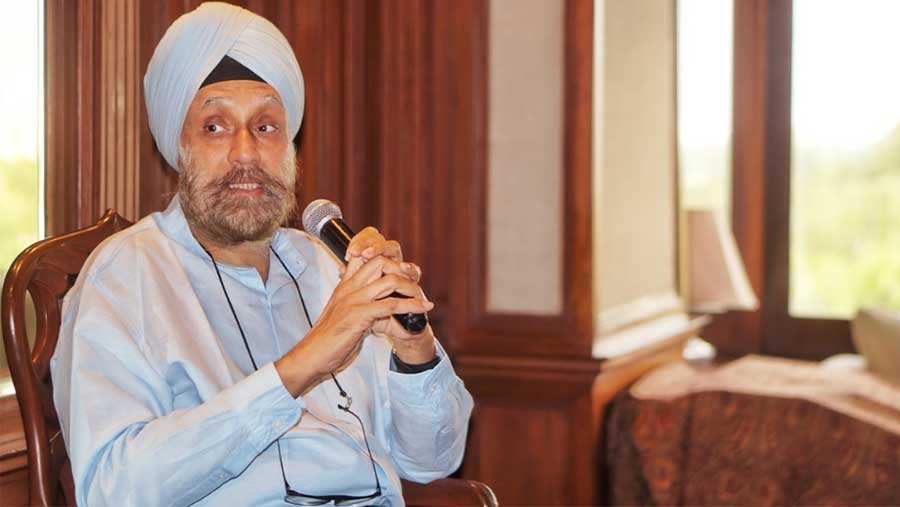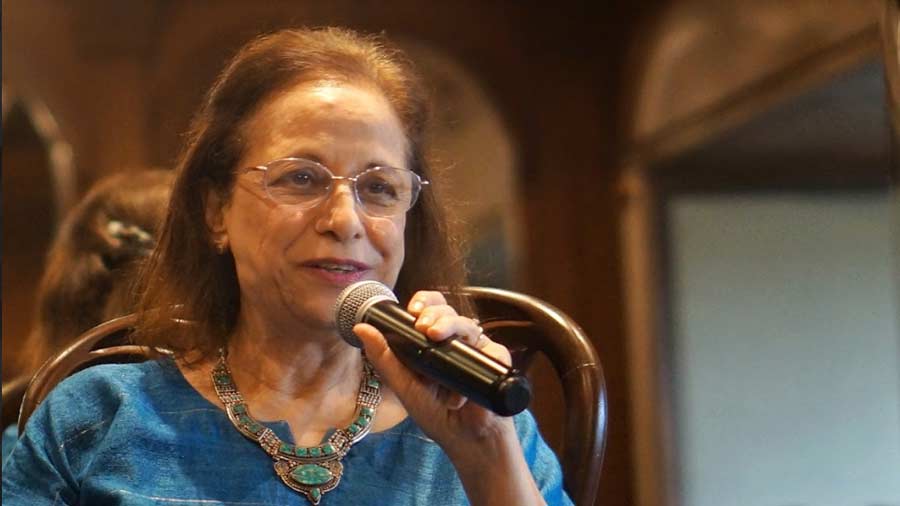“Hundreds died in those few minutes and hundreds more were wounded. The wounded were left to die as night came on, one body piled upon another near the exits. No medical assistance was given and a curfew soon prevented people from coming out to search for their loved ones… Even a 100 years later, the facts speak for themselves” — read the words from the prologue of Navtej Singh Sarna’s most recent book, Crimson Spring, which recounts the horror of the Jallianwala Bagh massacre from the perspective of nine characters in the novel.
Born to a lineage of Punjabi litterateurs — Mohinder Singh Sarna and Surjit Sarna Navtej Singh Sarna — Navtej Singh Sarna’s passion had always been writing. The former Ambassador of India to the US, High Commissioner to the UK, and Ambassador to Israel, Sarna’s professional journey has been one to inspire many. In a career spanning 38 years, he has been a secretary to the Government of India, as well as its foreign spokesperson. His diplomatic missions have taken him to Moscow, Thimphu, Tehran, Geneva, Warsaw and Washington DC. Despite the demands of his career, Sarna has kept alive his love for weaving words, both as columnist and author.
At the recent session of An Author’s Afternoon, organised by Prabha Khaitan Foundation at Taj Bengal, in association with Shree Cement Limited, with My Kolkata as digital partner, Sarna discussed his book and more with Esha Dutta, honorary convenor of Northeast Affairs of Prabha Khaitan Foundation.
‘It’s been a joy ride of great proportions’
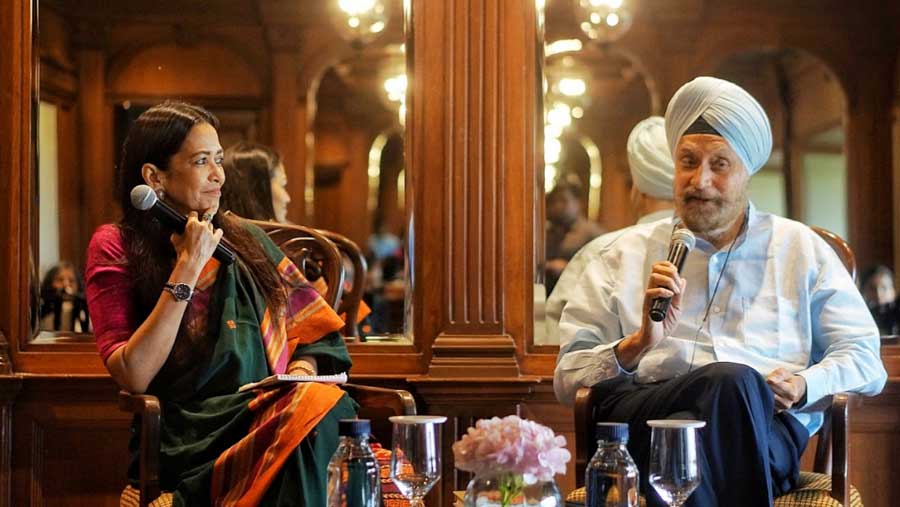
Esha Dutta (left) in conversation with Sarna
Describing his sometimes harrowing but mostly exciting experiences as a diplomat in different countries, Sarna remarked that keeping an open mind has helped him make the best of every assignment. “It’s been a joy ride of great proportions. Soviet Russia was my first post and that was really difficult. I wasn’t paid anywhere near what diplomats are paid today and several essential things weren’t available in extreme weather conditions. I then spent four years in communist Poland, which was very difficult because they didn't even have the money that the Soviet Union had but had the same problems. So, for instance, in Moscow, every night the main avenues used to be cleaned by snow ploughs. Poland didn't have money for doing that and all they could do was sprinkle salt on the snow,” recollected the author.
Talking about some of his more distressing experiences, Sarna spoke about how he was in the USSR when the Chernobyl accident happened (in 1986) and how they had to scramble for liquid iodine as it was the only available antidote. In fact, he was also in Thimphu when a serious rabies outbreak brought the city to a standstill. However, all that did not deter him from his profession and, looking back, he has no regrets. “I wouldn’t change a day of it,” he affirmed.
His part-time job as a journalist before being a diplomat also stood him in good stead. Not averse to journalists, he was successful in his role as the foreign office spokesperson. “It was a great job because we built a tremendous institutional system for the Ministry of External Affairs to engage the press, and this was important because what happens in diplomacy needs to be projected accurately,” said the author.
‘You can’t define yourself by your job’
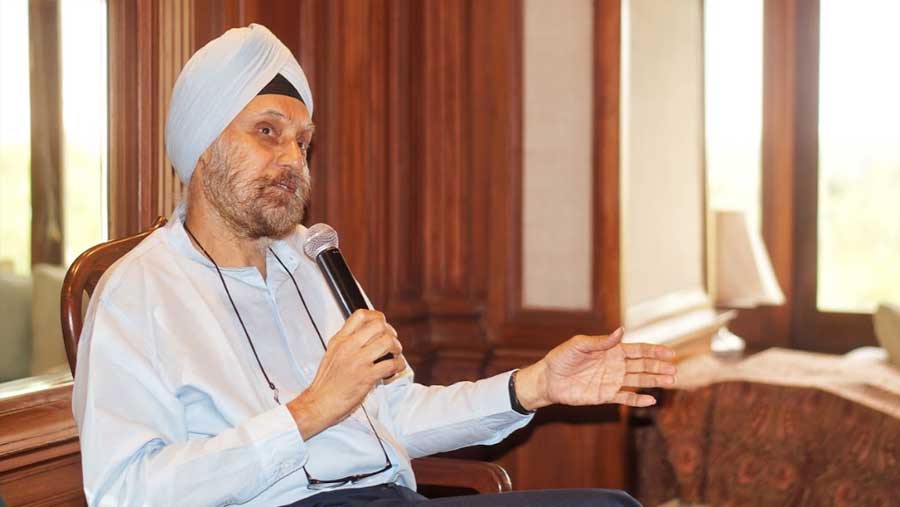
‘My home was about writing and reading,’ said Sarna
What led Sarna to take up writing professionally? “I can’t imagine what I would’ve done if I wasn’t writing. I believe that one also needs to have a passion besides one’s career. You really can’t define yourself by your job because jobs end, change and are devalued. It’s important to give yourself something else. My home was about writing and reading. My father was in the government but he was also a writer by passion and my mother did a fair amount of translation. I was a voracious reader. All the reading made me curious about the craft. It wasn’t about whether I should do it but rather that I had to do it,” confessed Sarna.
For the author, maintaining historical accuracy while presenting a story remains one of the most important concerns. Speaking of his novel, Exile, based on the life of Maharaja Duleep Singh, he remarked that before starting the book he felt that “not enough work had been done on the Maharaja”, especially around his emotional dilemmas. “I mixed fact and fiction. I added the fiction when there were no facts. I feel responsible for what the youth get to know about our history,” said Sarna.
A bloodied history
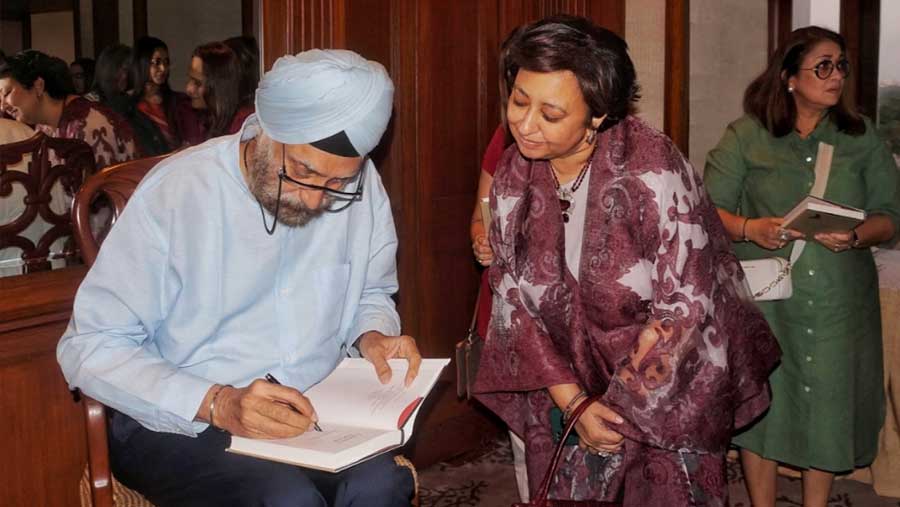
Sarna signing copies of ‘Crimson Spring’
Despite having written on disparate topics and varying genres, it was the centenary commemoration of the Jallianwala Bagh massacre that led to Sarna penning Crimson Spring. “When I started reading about Jallianwala Bagh, I realised that there were so many things that were happening in Punjab at the same time. For instance, the Ghadar Movement, the Singh Sabha Movement, and the beginning of the Freedom Movement as well as the Khilafat Movement. The Indian soldiers, who largely hailed from Punjab, had just come back from the First World War. Therefore, the protagonists of the book are people such as those soldiers, revolutionaries, among others. I had to undertake a huge amount of research, which often felt like it wasn’t going anywhere. Until two years ago, it seemed as if the book would be a culmination of nine different stories put together. Eventually, I found a common thread that bound them all,” explained the author.
Discussing a particular character in his book called Maya Dei, he noted that she had been inspired by a real person called Ratan Dei. “The seeds of many of these protagonists were partly fictional and some are completely based on historical facts. Maya Dei is based on a woman called Ratan Dei, who gave testimony to the Gandhi Inquiry Committee, which was parallelly set up alongside the Hunter Committee. Ratan Dei spent the whole night guarding the body of her husband (who had perished during the massacre) from vultures and dogs. Her character brings in other things that were happening in Punjab such as the plague and cholera. Her life presents the socio-cultural and geographical aspects of a lost Punjab,” described Sarna.
Speaking of reparations and apologies from the British, Sarna felt that they might never apologise for their crimes. “We can go asking for an apology, but I doubt they will ever say ‘sorry’. They have said ‘regret’ and ‘deep regret’, that’s as far as the British will go. Empires don’t say sorry. The same thing applies to whether they will return the Kohinoor. We can keep making a political point but I don’t think we should hold our breath,” concluded the author.
The session came to a close with a Q&A session with the audience and the author being felicitated on behalf of the Foundation.
Guests speak
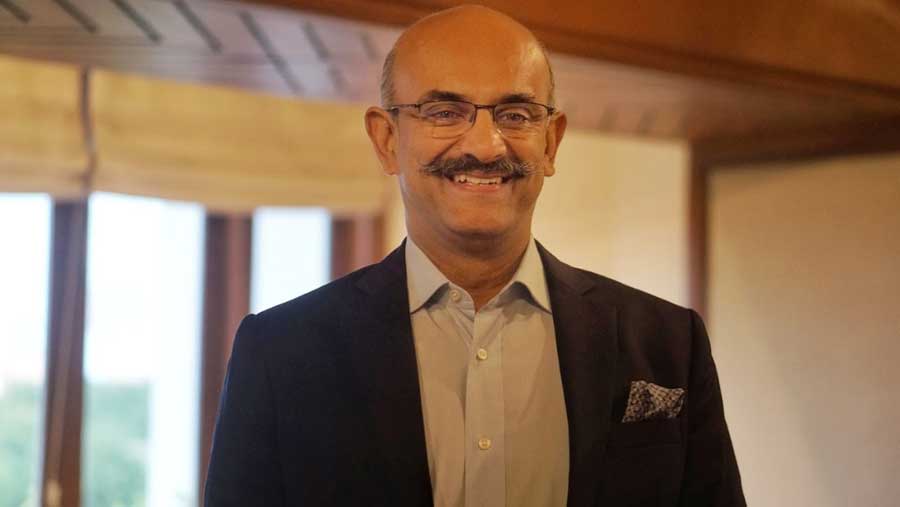
K. Mohanchandran
“It’s always a pleasure to listen to someone like diplomat Sarna because of their wealth of experience across countries and geographies. The way he’s able to build his experiences into what he writes and speaks makes it far more enlightening as a conversation.”
— K. Mohanchandran, senior vice president, Taj Bengal
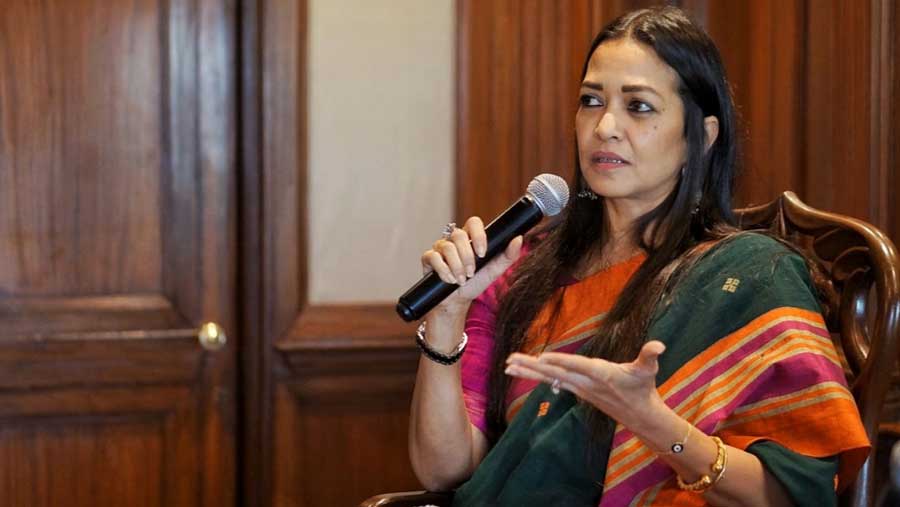
Esha Dutta
“This genre of historical novel is unusual because, on the one hand, there are the historical facts in place that are true to life, and woven into them are short stories of ordinary men and women whose personal loss brings about the poignancy in the book. Having said that, the book is a must-read. Mr Sarna speaks with such ease, wit, and confidence that it’s always going to be a delight to have a conversation with him. This was definitely one of the more memorable sessions.”
— Esha Dutta, honorary convenor of Northeast Affairs of Prabha Khaitan Foundation
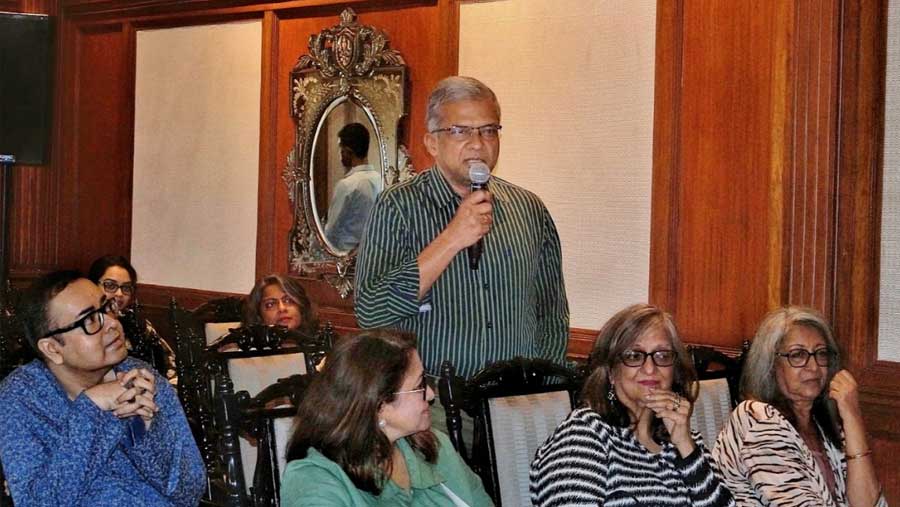
Manoj Mohanka
“I found the event really interesting because he spoke as an Indian diplomat, a historian, and a fiction writer. To merge three different facets of life is amazing.”
— Manoj Mohanka, chairperson, Charlestown Capital Advisors
